Iran First: Millions cast ballots in presidential runoff to shape country’s future
By Alireza Akbari
As polls opened in the presidential runoff election at 8 a.m. on Friday, Iranians from all walks of life headed to the nearest polling stations to cast their ballots to shape the country's future.
The run-off election followed the June 28 snap presidential vote, where Saeed Jalili, a former lead nuclear negotiator and head of the Supreme National Security Council, and Masoud Pezeshkian, a seasoned parliamentarian and former health minister, secured the most votes.
Leader of the Islamic Revolution, Ayatollah Seyyed Ali Khamenei, was the first to cast his ballot on Friday, commending the active participation of the Iranian people in the electoral process.
Prominent political and military figures also made their way to various polling stations in the capital Tehran and other cities to cast their votes, urging citizens not to delay voting until the final hours.
People of all age groups were seen queuing up before polling stations in the early hours of the morning to exercise their voting rights and elect their candidate of choice.
It was a democratic exhibition in its full glory with voter turnout exceeding 50 percent, more than the June 28 election and the 2021 presidential election when President Ebrahim Raeisi won by a landslide.
Press TV website caught up with several voters in the capital Tehran who shared their expectations from the next president and the rationale guiding their choices.
Sakineh, an 81-year-old retiree, compared the time before and after the Islamic Revolution of 1979, asserting that the nation's educational landscape is significantly stronger and brighter today.
She emphasized the need for the incoming president to understand the importance of the youth's role, alongside the intrinsic worth of the Islamic Republic of Iran and Islam.
Next to Sakineh stood her 51-year-old daughter, Shida, an employee who described her presence at a polling station to cast her ballot as a solemn duty towards her nation.
In Friday’s runoff election, more than 30 million votes were cast accounting for over 50 percent turnout as more people flocked to polling stations in Tehran and other cities and villages across the country.#IranVotes2024 pic.twitter.com/2uqkYCkczy
— Iran Election 2024 (@PressTVElection) July 5, 2024
Her expectations from the future leadership centered on proficient management and strategic planning to rectify deficiencies and a firm commitment to serving the population's needs.
Mohammad Reza, 37, cast his vote for the peace and prosperity of his country, asserting that the incoming president must confront the multifaceted challenges facing the great nation of Iran.
In a different vein, 27-year-old student Fatemeh displayed a decisive stance in her candidate selection, emphasizing the need for a president attuned to societal issues.
She advocated for enhanced freedoms in the digital realm, emphasizing internet usage as a pressing concern in today’s world.
Fatemeh's sibling, 25-year-old law student Atena, emphasized retiree welfare, attention to pension funds, and fortifying the future course of the nation in the economic arena.
Echoing a sense of civic responsibility, 25-year-old student Elham’s vision for the incoming presidency encompassed addressing economic and social challenges, advancing women's rights, enhancing foreign policy engagement, and curbing inflation.
Farnam, 24, articulated his hopes for a more vigilant and proactive approach to addressing economic challenges gripping the nation.
Specifically, he called for increased attention to the Financial Action Task Force (FATF) framework, emphasizing its pivotal role in addressing money transfer issues for the country.
As a first-time voter at age 19, Zeynab outlined a multifaceted vision for the next president, urging the utilization of diverse potentials inherent in the country's ethnic and religious communities.
She underscored the imperative of advancing women's rights, neutralizing sanctions, fostering job prospects for the youth, and championing environmental preservation as key expectations.
Negin, 25, emphasized the significance of job creation, resolving housing issues, and streamlining marriage facilitation as paramount expectations from the incoming president.
Millions swarm polling booths to choose Iran’s new president in runoff election#IranVotes2024 pic.twitter.com/tjt3jgamqa
— Iran Election 2024 (@PressTVElection) July 5, 2024
Sports coach Nadia, aged 30, shed light on issues such as declining marriage rates, rising healthcare expenses, and soaring housing costs as key areas that the new president must address.
She underscored the enduring and unflinching love of the Iranian people for their homeland, highlighting the next president's mandate to tackle a myriad of challenges.
Echoing similar sentiments, 26-year-old Rana stressed the importance of presidential accountability in fulfilling promises to alleviate the country’s economic woes, while also highlighting the imperative of strengthening internet infrastructure to bolster economic opportunities for the populace.
For 50-year-old Reza, attention to international relations, uplifting the nation's economic landscape, and fostering closer ties with neighboring states were key expectations from the next president.
He underscored the necessity of harnessing managerial acumen within the elite class to drive national progress.
Mona, 41, emphasized the urgency of lifting or neutralizing sanctions, bolstering international relations, and fortifying the national economy as key tasks for the incoming president.
Yahya, 41, underscored the imperative of electoral promises translating into tangible outcomes, calling for the preservation of territorial integrity and advocating for advancements in the country's technological infrastructure as main pillars for a stronger Iran.
Majid, 35, referred to the necessity of aligning governance with the objectives of the Islamic Republic.
He emphasized the need to leverage the expertise of the country’s elite class and foster robust diplomatic strategies as the cornerstone of the next president’s agenda.
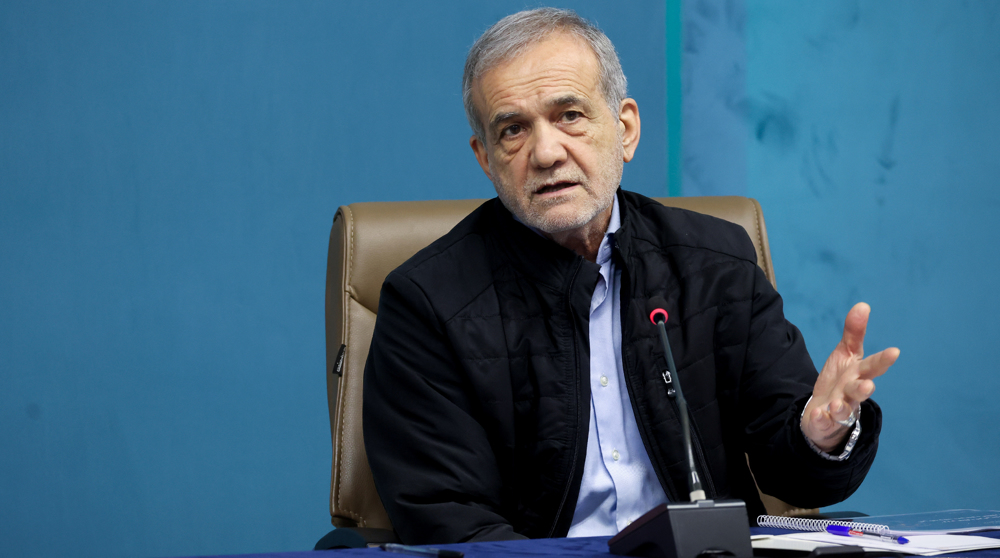
Pezeshkian: Imperialism seeks to portray Islam as threat to humanity
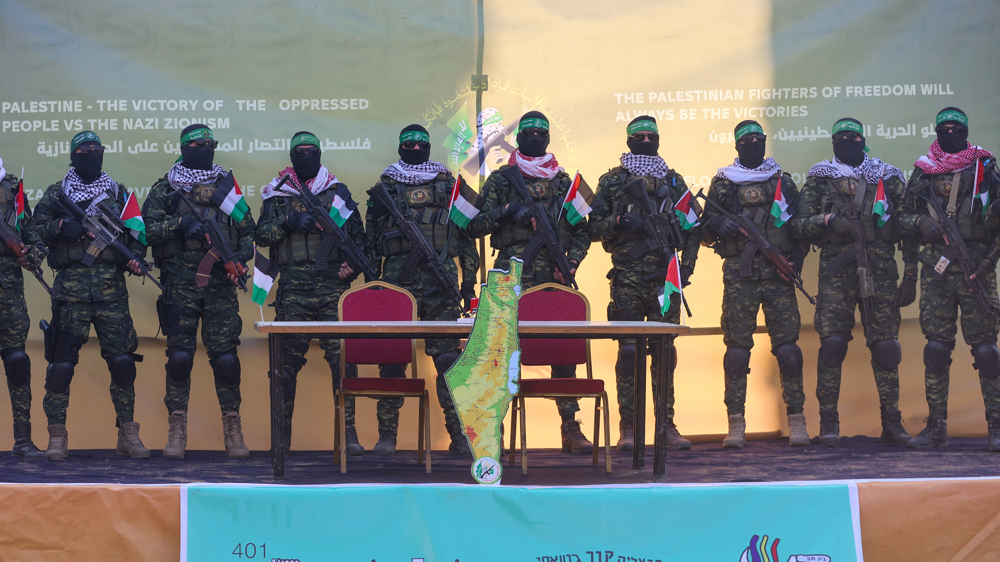
IRGC: Legacy of Qassam Brigades martyrs eradicating ‘cancerous tumor’ of Israel
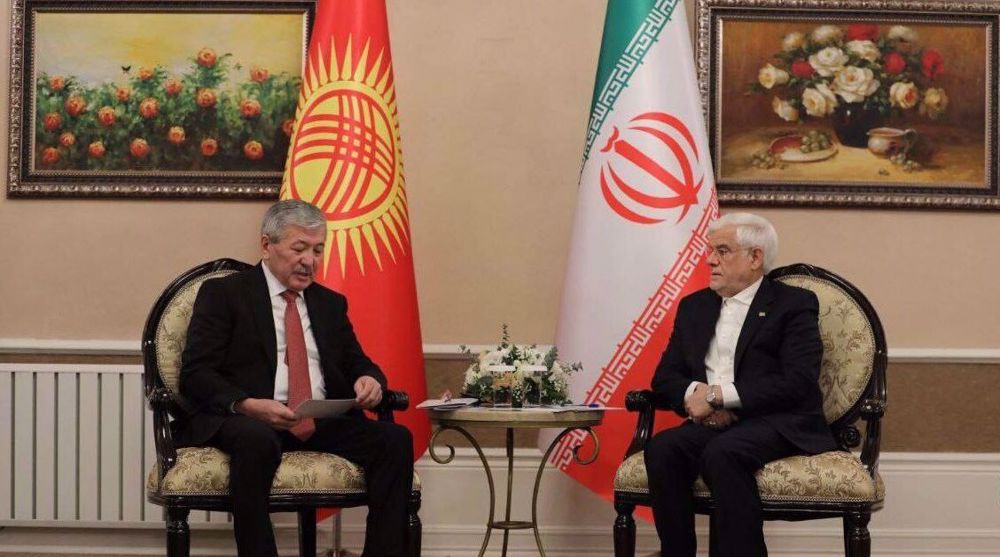
Iran determined to boost ties with Kyrgyzstan: VP
Another Syrian scientist assassinated in aftermath of militant takeover: Report
Private airline rejects reports it is tied to Iran Air after French ban
ICRC outraged over Israel’s shackled, humiliated release of Palestinian prisoners
Israeli drone strike kills Palestinian teenage boy in occupied West Bank
Israel admits it failed to assassinate Hamas commander Haitham al-Hawajri
Cargo transit via Iran up 27% y/y in 10 month to late January
VIDEO | Captive exchange and task of Yetkof
VIDEO | British Zionist cut out tackles Musk


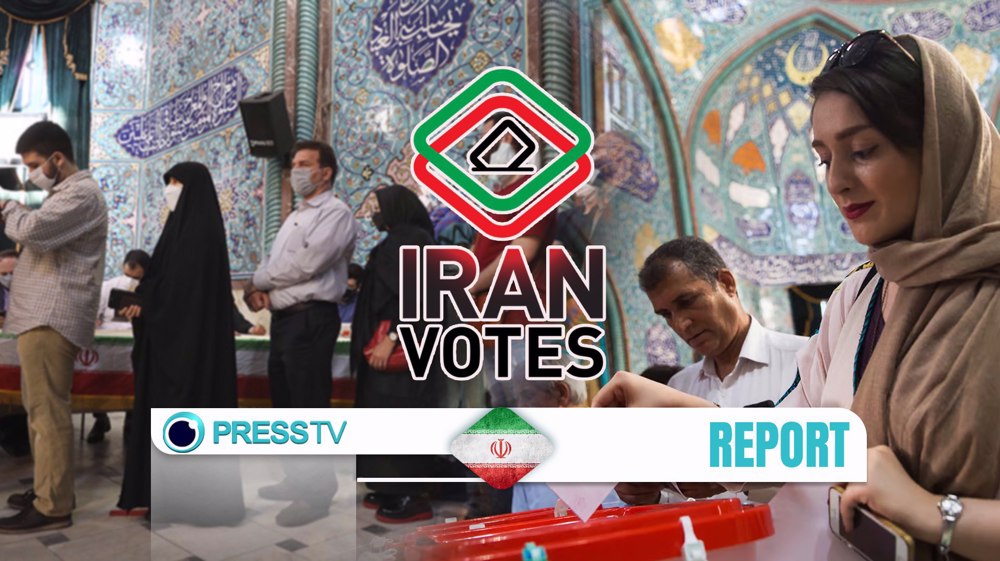



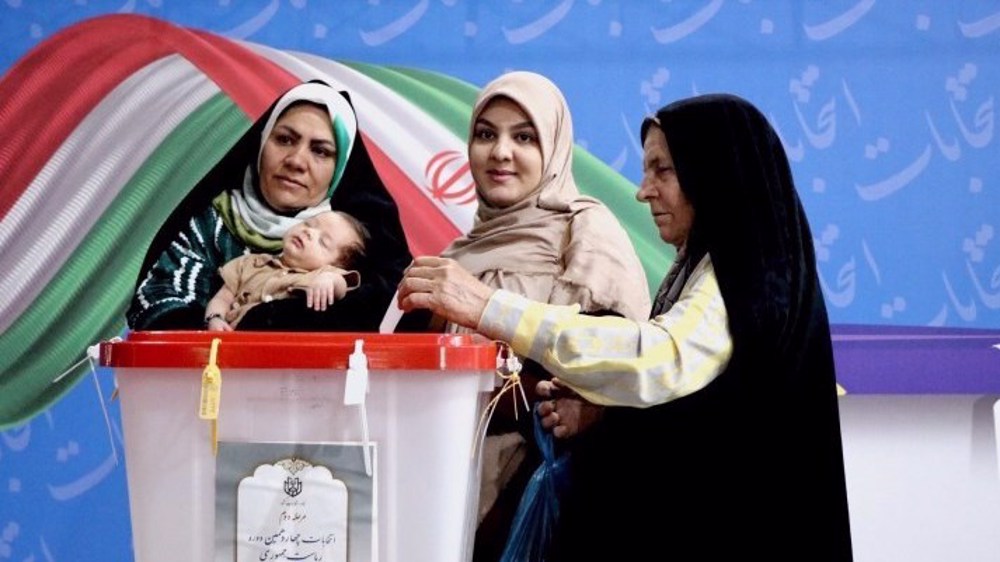
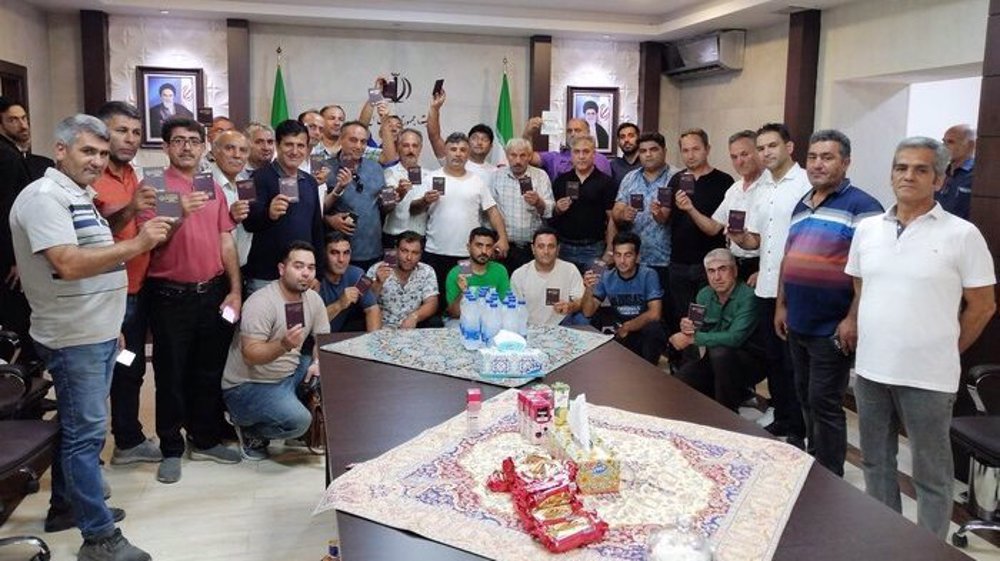
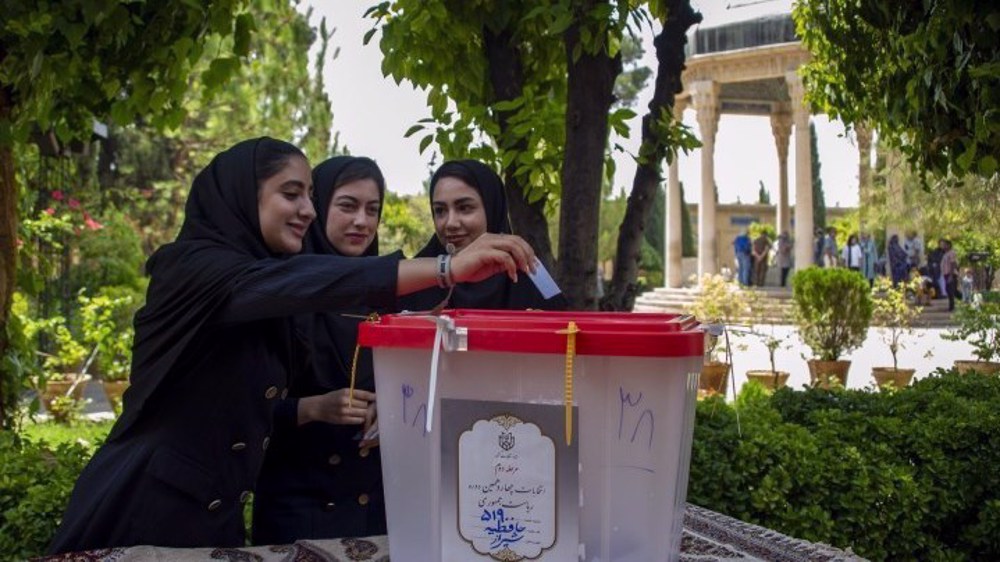
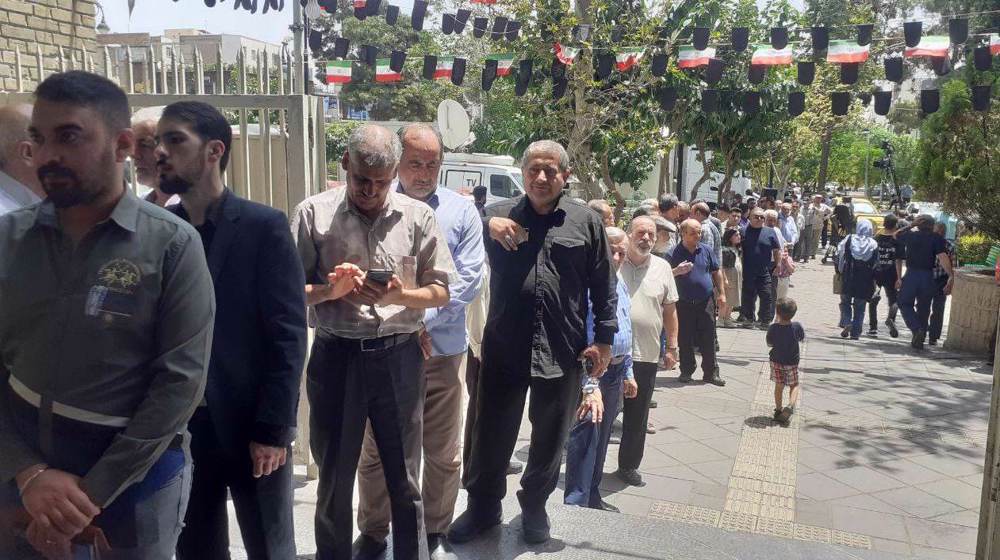
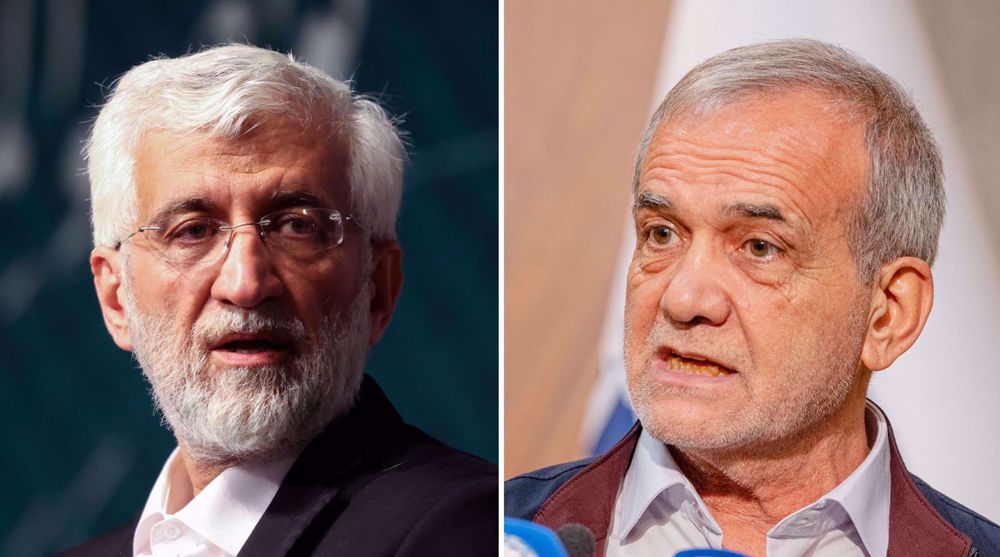

 This makes it easy to access the Press TV website
This makes it easy to access the Press TV website